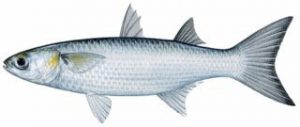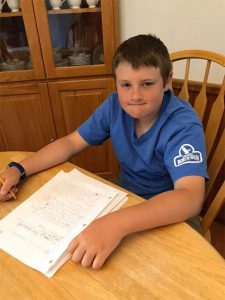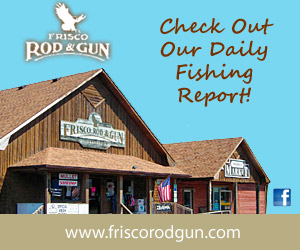
In March of this year, a bipartisan bill was put into motion that many believe will undermine the economic structure of Hatteras Island if it is passed. House Bill 483, colloquially known as the “Let Them Spawn” Bill, proposes to place size limits on species vital not only to the commercial fishing industry directly, but also local tackle and sport fishing businesses indirectly. With the bill moving quickly through North Carolina’s General Assembly and now being placed before the senate, it is important to understand the impact that the “Let Them Spawn” Bill could have if it becomes law.
Under current law, the North Carolina Division of Marine Fisheries (DMF) monitors marine species through Fishery Management Plans designed both to bring the most benefit to the state while still sustaining the fish population. “Let Them Spawn” suggests that the DMF should be responsible for creating a management plan to protect “every species of marine fish which has contributed historically and significantly to the fisheries of North Carolina.” To be more specific, the bill lists the spot, Atlantic croaker, kingfish, striped mullet, southern flounder, and bluefish as those which are both significant and in danger of being over-fished. House Bill 483 would place size limits on these species in order to ensure that 75% reach maturity.
The bill has raised a lot of red flags with people in the North Carolina fishing industry, primarily because of the inclusion of mullet on the list of species requiring a size limit. Mullet is a bait fish, employed by both commercial and recreational fishermen to achieve their ends. Although the beasts are some of the most stinky and slimiest around, most N.C. commercial fishermen catch mullet throughout the year and sell them to tackle shops in order to supplement their income. Without that, commercial fishing as an industry might cease in N.C. as it becomes financially impossible for commercial anglers to meet their needs. This is not the only economic consequence, however.
House bill 483 could also be detrimental to the tackle and sport fishing industries if it is passed. Tackles shops across the island sell mullet year-round to eager anglers. Without mullet as baitfish, they could lose business not only to novice fishermen, but charter fishermen as well. In turn, charter captains and mates could suffer from not having the supplies necessary to run their businesses. This, then, also applies to fish cleaners, fish packers, and marinas as well. So many people on Hatteras Island would be out of work.
What’s more is that if there are even more restrictions placed on fishing North Carolina waters than are currently in place, anglers might go elsewhere to pursue their passion. As a community that survives on the success of the tourist industry, this bill could be detrimental to Hatteras Island restaurants, businesses, and non-profits as well.

Not only are the effects of the bill alarming, but its origin is as well. Initiated and supported by the Coastal Conservation Association, which lobbies for conservation of fish species across North Carolina, some believe that the bill could just be another ploy in this organization’s hands to limit commercial fishing. Similarly disquieting is the fact that the primary sponsors of the bill are representatives from inland N.C. who don’t understand the conditions of life on Hatteras and Ocracoke islands and have very little stake in the matter. Many local citizens have argued that their opinions were never addressed during the formulation of the bill and had no idea it had been moving through the General Assembly when it was.
Many people in the Hatteras Island community have taken steps to speak out about this issue. Ernie Foster, who owns the state’s oldest charter fishing fleet, contended with the issue on Facebook stating that “the fact that our professional scientists, [Division of Marine Fisheries], do not support this should be a clue.”
Jake Worthington highlighted the issue on change.org where his petition explains major flaws in the bill and gives people the opportunity to encourage policy leaders to vote no on the bill. As of today, the petition is up to 5,940 votes with a goal of 7,500.
11-year-old Joe Kavanaugh wrote a letter to Senator Bob Steinburg bemoaning the issues with this bill for our community, his family’s business, and recreational fishing with his friends.
House Bill 483 is currently under review by a senate committee and, if passed, threatens to upheave the foundation of Hatteras Island’s economy. If you would like to have a say in whether or not a bill is passed go to https://www.change.org/p/north-carolina-state-senate-let-em-spawn-agenda-driven-ploy-vote-no or even better, write a letter to your senator.





